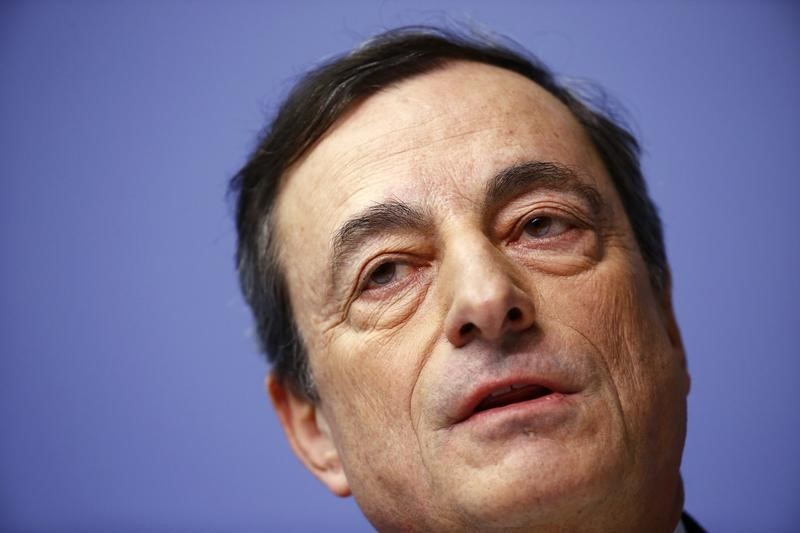(Bloomberg) -- European Central Bank President Mario Draghi attacked the U.S. Treasury Secretary’s comments on the dollar, saying he isn’t playing by the rules.
Speaking in Frankfurt on Thursday, Draghi said the recent euro-dollar moves are partly down to Steven Mnuchin’s intervention at the World Economic Forum in Davos, at which he said a weaker greenback is good for U.S. trade. The remarks breach a pledge by IMF members, Draghi said.
“The exchange rate has moved in part because of endogenous reasons, namely the improvement in the economy, in part due to exogenous reasons that have to do with communication. But not by the ECB, but by someone else. This someone else’s communication doesn’t comply with the agreed terms of references.”
The euro strengthened after Draghi’s comments, touching $1.2537, the strongest level since December 2014. It was up 0.5 percent at $1.2469 as of 3:45 p.m. Frankfurt time.
The comments came as President Donald Trump arrived in Switzerland. Mnuchin also clarified his comments at the WEF on Thursday, saying he’s in favor of freely floating currencies.
International Monetary Fund Managing Director Christine Lagarde had earlier called for Mnuchin to explain his remarks and reminded him that the dollar’s value is set by the market. For good measure she added that now is not the time for a currency war.
“The dollar is of all currencies a floating currency and one where value is determined by markets and geared by the fundamentals of U.S. policy,” Lagarde said in a Bloomberg Television interview with Francine Lacqua and Tom Keene.
The ECB president noted that several members of the Governing Council expressed alarm about Mnuchin’s comments and U.S. policy.
“This concern was broader than simply the exchange rate, it was about the overall status of international relations right now. There is also an additional concern. If all this was to lead to an unwanted tightening of monetary policy which is not warranted then we would have to think about our monetary policy strategy.”
At the press conference following the ECB’s January decision, Draghi referenced the promise of IMF member countries to “refrain from competitive devaluations” of currencies and to avoid targeting “our exchange rates for competitive purposes.”
